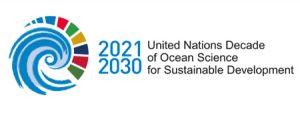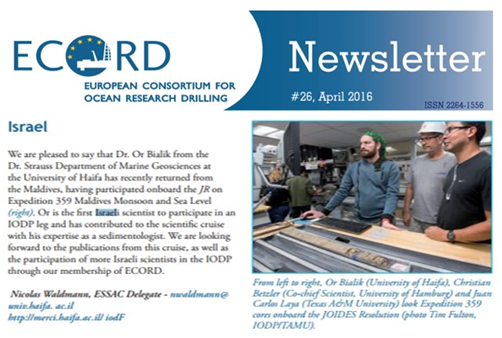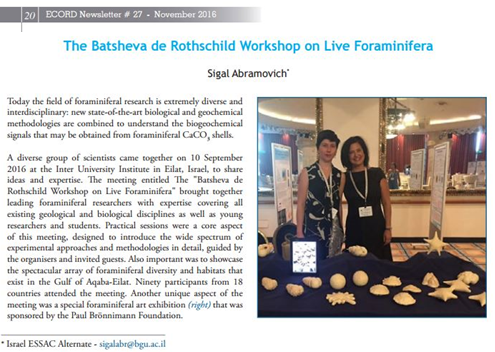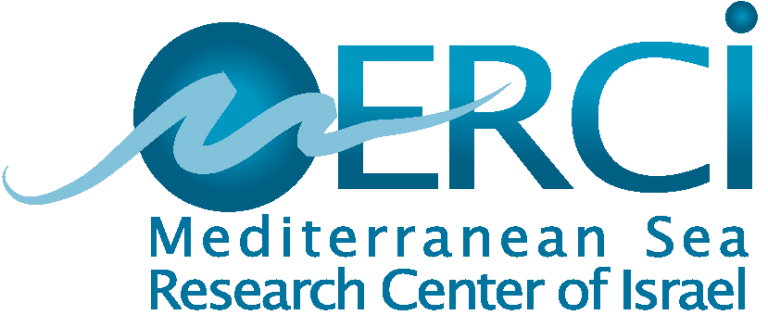International Collaborations
:2020-2022
Executive Summary of the Committee Report. 2021
 Just like our Mediterranean boasts an unparalleled canvas of world-class cultural heritage sites and a wealth of traditions, it is also a hotspot of biodiversity and geodiversity, and home to a multitude of unique habitats and species. To celebrate the Mediterranean is to celebrate life in its full amplitude and plenitude. This ancient sea around which we live has given the world its greatest civilizations, its earliest academies and universities, its first dramatists and philosophers and its most celebrated trade centres.
Just like our Mediterranean boasts an unparalleled canvas of world-class cultural heritage sites and a wealth of traditions, it is also a hotspot of biodiversity and geodiversity, and home to a multitude of unique habitats and species. To celebrate the Mediterranean is to celebrate life in its full amplitude and plenitude. This ancient sea around which we live has given the world its greatest civilizations, its earliest academies and universities, its first dramatists and philosophers and its most celebrated trade centres.
The Day of the Mediterranean aims to act as a timely reminder that our similarities largely overcome our differences, the cultural dimension being an important component of who we are and where we come from. It provides an opportunity to celebrate achievements, embrace diversity, to strengthen ties between our two shores and to deepen our understanding of each other.
Looking to the future, the Day of the Mediterranean also offers a unique moment to showcase issues of interest, mobilise political will and commit resources to address common challenges in the region.
2017:

University of Texas A&M – University of Haifa Eastern Mediterranean Observatory (THEMO)
Texas A&M University and the University of Haifa are joining forces to establish a major Mediterranean observatory to capitalize on the oceanographic and atmospheric strengths of the two institutions and build on existing teaching and research in the Gulf of Mexico and the Eastern Mediterranean Sea.
The “Texas A&M – University of Haifa Eastern Mediterranean Observatory” (“THEMO”) will be a research hub that will address significant environmental, geological, energy management and economic challenges facing all countries that feature marine coastlines.
THEMO is composed of two parallel, interconnected tracks – Marine Technologies and Education. The underwater observatory will be located off the coast of Haifa, with a shared, shore-based facility located at the University of Haifa.
MERCI researchers, researchers and students from both universities to advance research and learning purposes will use data gathered from the underwater sensors.
The underwater observatory will be comprised of two underwater moorings (shallow water – 120m depth and deep water – 1500m depth) and connected to a shared, shore-based control room. The two moorings will contain sensors to collect acoustical, meteorological, chemical, and biological measurements. The data will be analyzed to track changes in ocean acidification, water temperature, and pollution. This information will shed light on how events are impacting the food web and ecological relationships in our area; ultimately providing us with the data to predict future trends and inform policy-makers who are charged with creating sound management plans for Israel’s coastal and offshore activities. Data generated from THEMO will be open-access data, and serve the entire scientific community.
Naval Academy, Varna, Bulgaria
The previous year, began a relationship with the Naval Academy, Varna, Bulgaria, which is trying to establish a consortium for the study of the Black Sea, which combines the research interests of four countries along the sea: Bulgaria, Romania, Russia and Turkey. This year, a memorandum of understanding was signed for scientific cooperation in the study of the sea with them. The possibility of submitting a joint proposal to the European Union is being examined.
GEOMAR- Germany
Prof. Dr. Peter M. Herzig- Executive Director visited Israel during June and agreed on the creation of an outline for maritime research cooperation between Israel and Germany, with an emphasis on marine strategy, marine technologies and the use of the Israeli vessel “Bat Galim”.
Japan
As part of the scientific relationship with Japan Agency for Marine-Earth Science and Technology (JAMSTEC), the Japanese want to bring the advanced drilling vessel DV Chikyu to work in the Mediterranean.
We are awaiting answers to the research proposal submitted on this subject.
Norway
During 2016, Israel and Norway agreed on new cooperation in the field of gas and oil. Following the announcement, an apply to the Minister of National Infrastructures, Energy and Water, Dr. Yuval Steinitz, was made in order to define MERCI the Israeli Center for Mediterranean Research as the center of research activity on behalf of Israel.
China
Representatives of the Center participated in the International Rector Meeting at Zhejiang Ocean University. At the meeting, the work of the Israeli Center for Mediterranean Research presented and opportunities for future cooperation created.
Singapore
In November 2016, a party from Nanyang Technological University visited here in order to explore possible cooperation in sea research between Israel and Singapore.
Portugal
Following the changes in the government in Portugal, a new minister for sea affairs was appointed. Per our request the Portugal Ambassador in Israel, contacted the minister in order to promote cooperation with the Mediterranean Research Center of Israel. Both sides would like to encourage research collaboration, and an idea was raised to promote a visit to Portugal on this matter, possibly even within the framework of an invitation by an Israeli minister to Lisbon.
Canada
This year many contacts were made to promote maritime research cooperation between Israel and Canada, led by the Israeli Ambassador in Canada, Mr. Rafi Barak. Among Canadian institutions with whom contact was made and expressed a desire for cooperation:
University of British Columbia
Dalhousie University
Ocean Networks Canada
Churchill Northern Studies Centre
Canadian High Artic Research Station
Université du Québec à Rimouski
At this point, we are waiting for an answer regarding the continued funding of MERCI in order to implement cooperation with Canada.
Cooperation with the countries of the Eastern Mediterranean basin
As part of a research cooperation between Greece, Cyprus and Israel, a European Union research grant on “Seafloor methane seeps, carbonate buildups and deep sea corals in an oligotropic arginal sea – the case of the southeast Mediterranean Eratosthenes SM and offshore Israel” (SEMEEP) was approved this year. ).
The study will deal with the economic waters of Israel and Cyprus through a Greek research vessel.
A tripartite apply was made to the relevant ministers of the three countries with the aim of signing a memorandum of understanding in the field of maritime research.
In addition, the Ambassador of Cyprus in Israel is scheduled to visit the Center’s facilities during 2017.
Initiatives to join international organizations on the subject of Marine Observatory
As part of the efforts to conduct long-term monitoring in the framework of MERCI (Gliders, Sediment Traps, the facility in conjunction with Texas) The Scientific Committee is still looking favorably at the possibility to join one of the international organizations, uniting the research bodies with similar systems throughout.
Depending on future budgets allocated to MERCI.
The following organizations were contacted:
MONGOOS – Mediterranean Oceanography Network for the Global Ocean Observing System
Pogo – Partnership for Observation of the Global Ocean

 R
R



